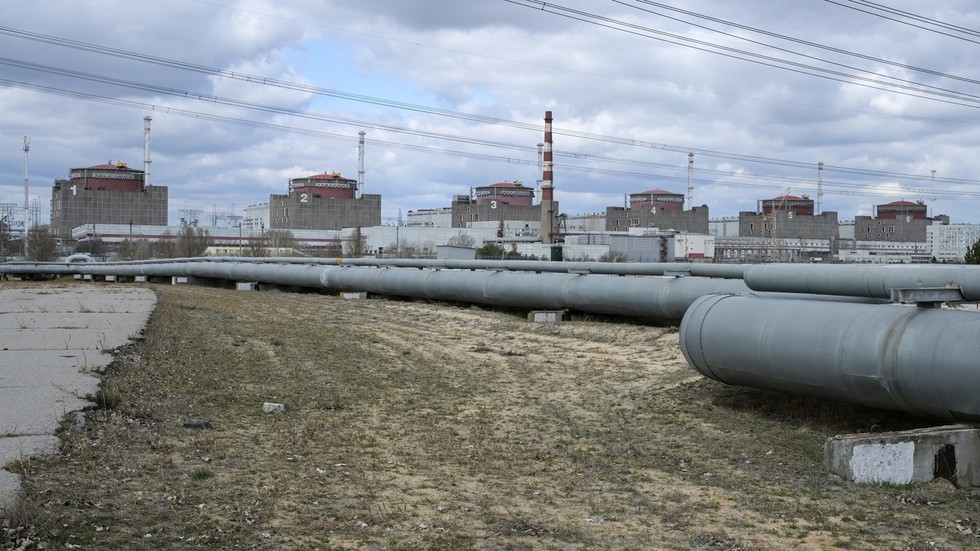Britain will recognise the state of Palestine in September unless Israel ends the "appalling situation in Gaza", Sir Keir Starmer has said, amid growing horror over the humanitarian crisis in the territory.
After recalling his senior ministers for an emergency cabinet meeting on Tuesday, the prime minister said "now was the right time to move this position" on the two-state solution.
Starmer discussed the plans with President Trump when the pair met in Scotland on Monday, with both leaders expressing shock and dismay at the situation in Gaza.
In an ultimatum to Benjamin Netanyahu’s government, Sir Keir said the UK could recognise the state of Palestine as soon as the United Nations General Assembly in September – unless the Israeli government agrees to a ceasefire and commits to a two-state solution.
However the Israeli foreign office immediately rejected the prime minister’s statement, with the country’s foreign ministry posting on X: “The shift in the British government’s position at this time, following the French move and internal political pressures, constitutes a reward for Hamas and harms efforts to achieve a ceasefire in Gaza and a framework for the release of hostages.”
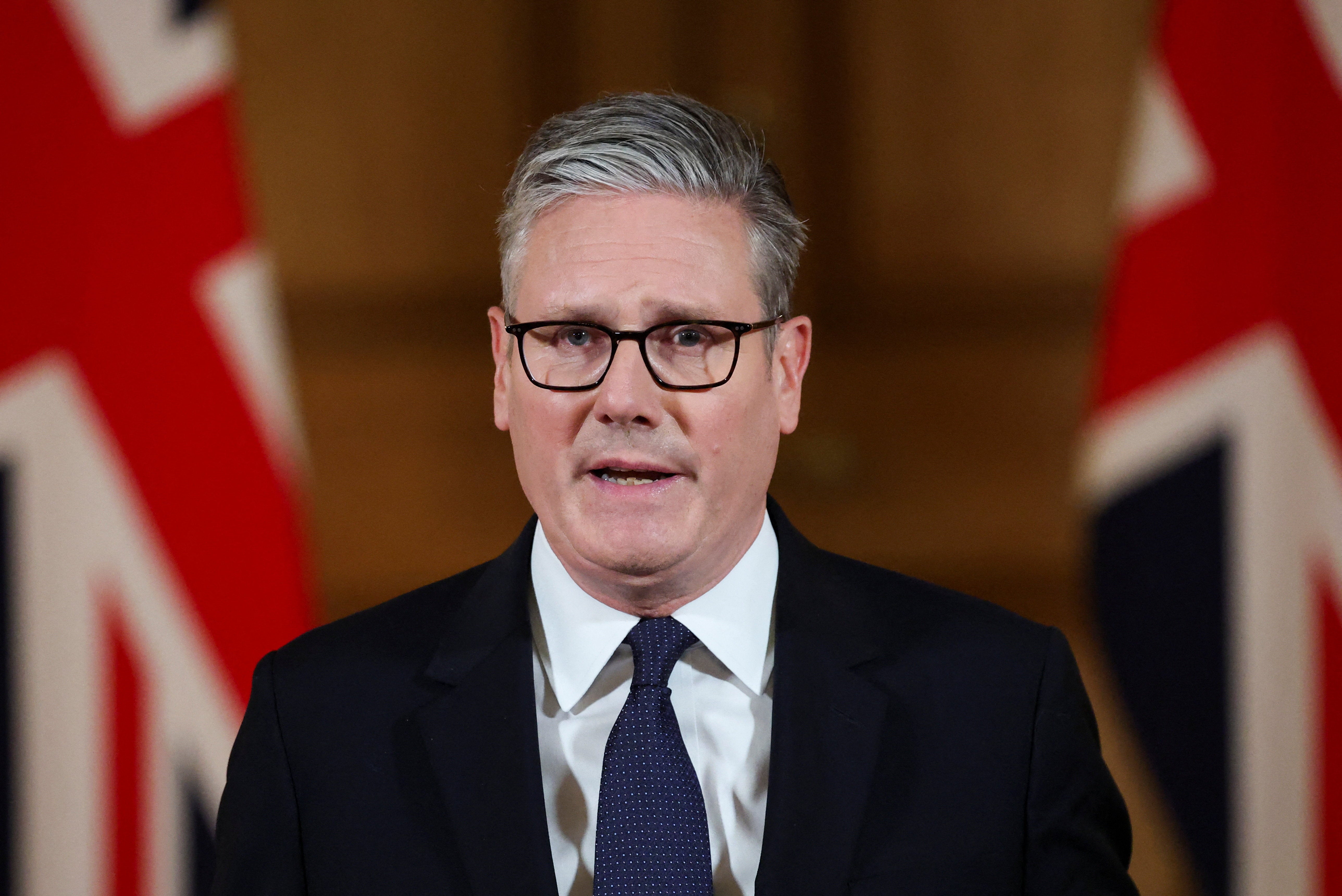
The prime minister has been under pressure for months to act on the unfolding crisis in Gaza, with a series of stark warnings about the famine and starvation in the territory. Cabinet ministers and backbenchers have added to the chorus of calls to act, with more than 250 MPs signing a letter last week demanding recognition of a Palestinian state.
Speaking to reporters after Tuesday’s emergency meeting, Sir Keir said that the UN must also be allowed to restart the supply of aid, has claimed the British public is "revolted" by scenes of starvation that have dominated the world’s media.
The UK and its allies need to see "at least 500 trucks entering Gaza every day" to deliver aid, the prime minister added, and are together "mounting a major effort to get humanitarian supplies back in" by air and by land.
The prime minister added: "Meanwhile, our message to the terrorists of Hamas is unchanged but unequivocal: they must immediately release all of the hostages, sign up to a ceasefire, disarm and accept that they will play no part in the government of Gaza.
"And we'll make an assessment in September on how far the parties have met these steps, but no one should have a veto over our decision.
"So this is the way forward.
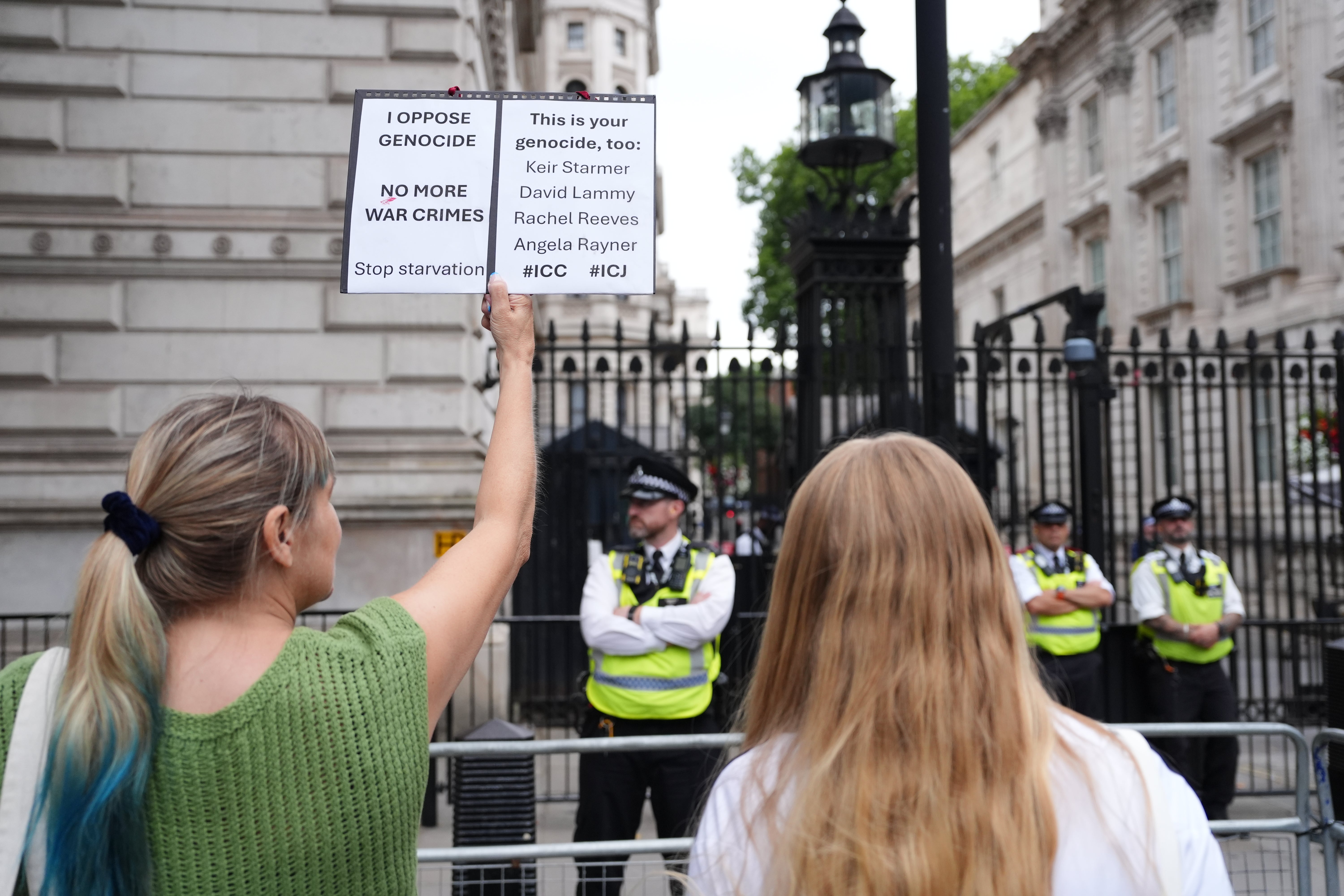
"We will keep working with all our international partners to end the suffering, get aid flooding into Gaza and deliver a more stable future for the Middle East, because I know that is what the British people desperately want to see."
Explaining an apparent change in policy, Sir Keir said he was concerned that if a Palestinian state was not recognised now then there may not be a state to recognise soon.
He said: “It's driven today by two things, judging the context in the intolerable situation in Gaza, which is getting worse by the day, but also because of the concern that the very possibility of a two-state solution is reducing and feels further away today than it has for many, many years, and therefore, it should be seen in both of those contexts."
The prime minister held the emergency virtual cabinet meeting where he laid out his plan for peace agreed over the weekend with French President Emmanuel Macron and German chancellor Friedrich Merz.
Pressure had been mounting on Sir Keir to recognise Palestine as a state, but the decision to put the ball in the Israeli government’s court was a compromise to satisfy two competing factions in his cabinet.
Senior cabinet members who support plans to recognise a Palestinian state include deputy prime minister Angela Rayner, justice secretary Shabana Mahmood, energy secretary Ed Miliband and foreign secretary David Lammy.
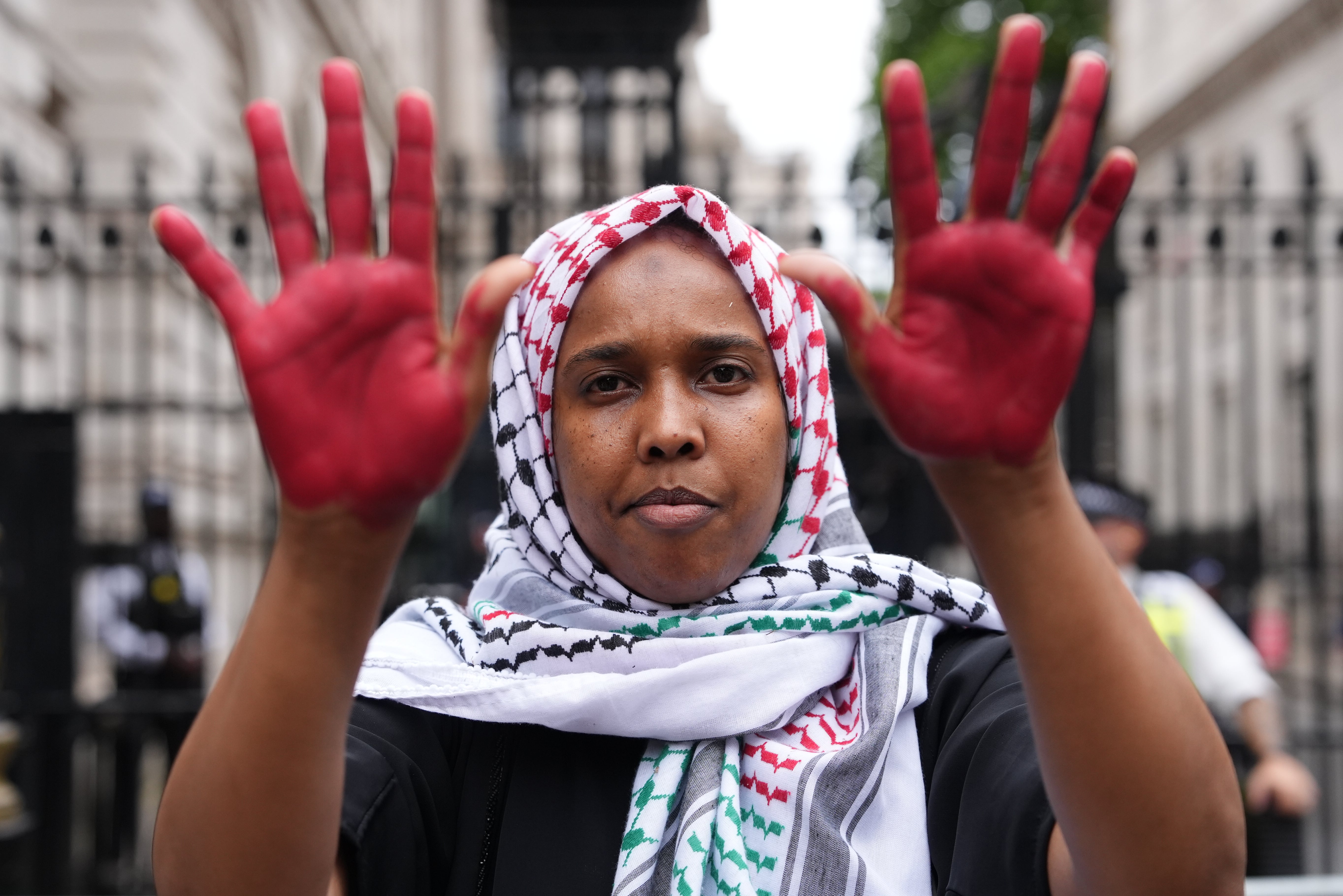
But on the other side chancellor Rachel Reeves, tech secretary Peter Kyle, chancellor of the Duchy of Lancaster Pat McFadden, who have been officers of Labour Friends of Israel (LFI), were worried recognition would “reward Hamas”.
Mr Lammy, speaking from the United Nations in New York, said the UK bears a "special burden of responsibility" to support the two-state solution as he announced the UK's plan to recognise Palestinian statehood at the United Nations in New York.
"The situation on the ground continues to worsen and the two-state solution is in peril," he told a United Nations conference on the Israeli-Palestinian conflict.
He called Israel's rejection of a two-state solution morally and strategically wrong.
"The Netanyahu government's rejection of a two-state solution is wrong; it's wrong morally; and it's wrong strategically.”
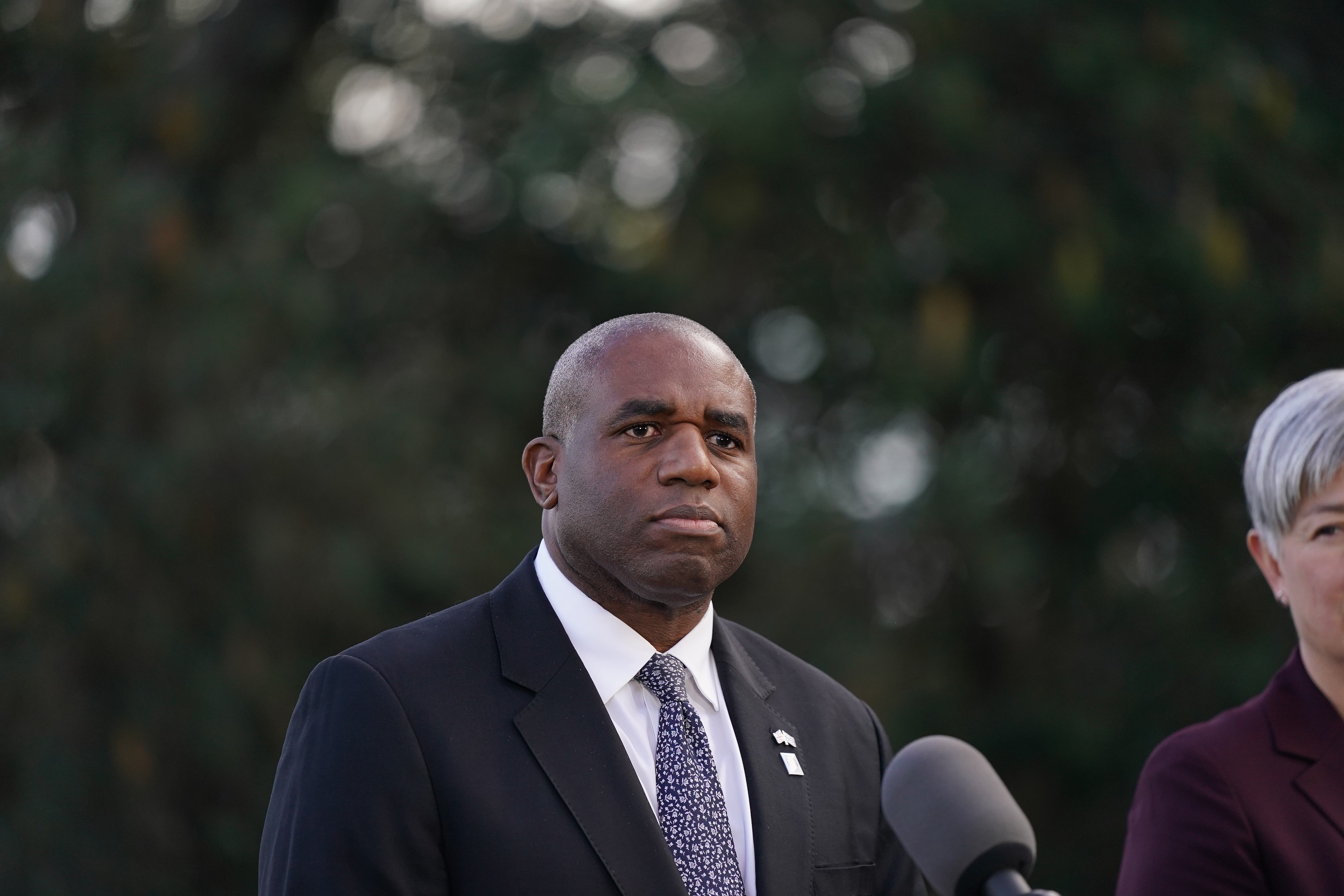
Labour MP Sarah Champion, who organised the letter from MPs demanding recognition of a Palestinian state, said: “It's a really big moment... It will politically be a very strong message that we are sending to Israel: that we believe in the self-determination of the Palestinian people and that she status quo is not good enough.”
But Labour Friends of Israel (LFI) warned that recognition of a Palestinian state would be “merely symbolic” unless the UK and its allies use their influence “to establish the principles of a meaningful pathway to a Palestinian state.”
A spokesperson said: “Recognition of a Palestinian state outside of a meaningful peace process will change nothing on the ground and will damage our reputation as an impartial broker, reducing our ability to bring about a sustainable long-term peace.”
Tory leader Kemi Badenoch said: “It's disgraceful that Keir Starmer recalled his Cabinet to try and sort out a political problem for the Labour Party.
“Recognising a Palestinian state won't bring the hostages home, won't end the war and won't get aid into Gaza. This is political posturing at its very worst.”

 4 days ago
3
4 days ago
3
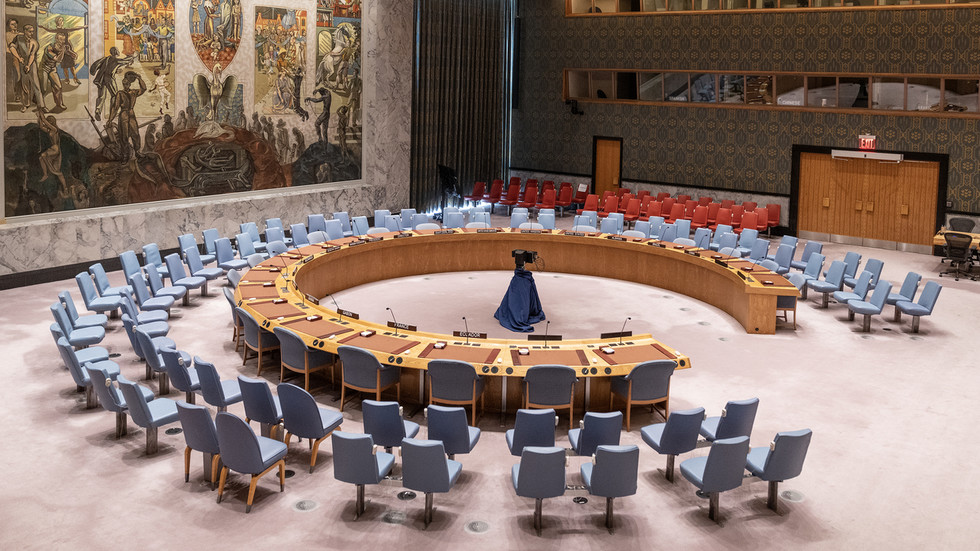


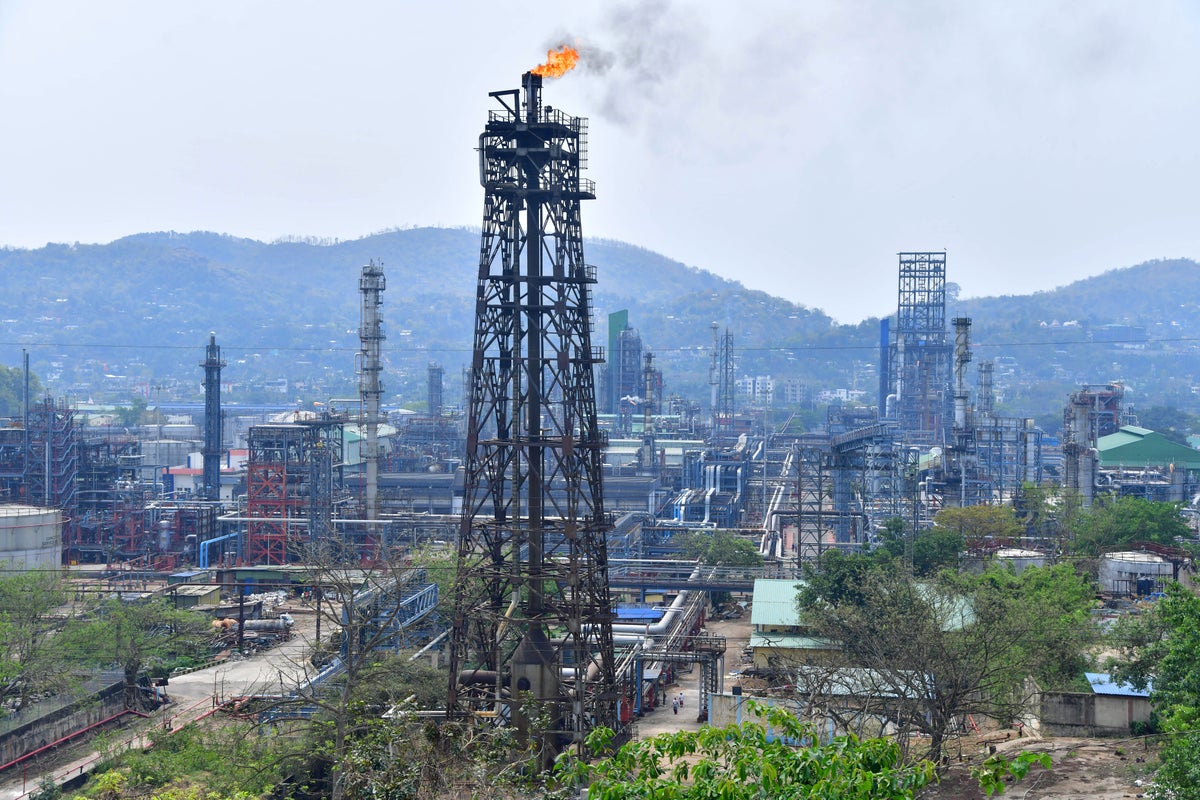
.jpeg?trim=0,5,0,5&width=1200&height=800&crop=1200:800)


